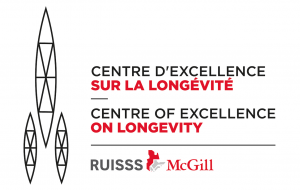[vc_row][vc_column width=”1/4″][vc_column_text]Partners
- Geriatric Assessment Unit of St. Mary’s Hospital
- McGill University
- International Laboratory for Brain, Music and Sound Research (BRAMS), Université de Montréal
[/vc_column_text][/vc_column][vc_column width=”3/4″][vc_column_text]Context
Music is an art form that can be used as a means of conveying verbal or non-verbal communications as well as pure emotions. As communication may be affected in elderly people due to cognitive deficit or a related condition, music can also be used to restore elderly patients’ ability to engage and communicate with their surroundings. It has been demonstrated in geriatric populations that listening to music reduces depressive symptoms as well as neuropsychiatric symptoms such as agitation and anxiety. Consequently, the use of music is recommended by national directives to control behavioral symptoms of patients in long-term residential care facilities. Despite the demonstrated, positive effects of music on health, and the associated behavioral consequences, very few studies using music have been carried out in a hospital setting, and even fewer in short-stay geriatric units. One of the most significant age-related risks is the risk of very frequent falls in geriatric patients, particularly in short-stay geriatric units, with a rate of occurrence that can be as high as 30%. Earlier research has shown that music can reduce the risk of falling. We have, therefore, advanced the hypothesis that listening to music can reduce the risk of falls in geriatric patients admitted to a short-stay unit.
Objective
> To examine the influence of listening to music on the risk of falls in patients admitted to a geriatric assessment unit, comparing the Morse Fall Scale (MFS) score in patients who had taken part in sessions of listening to music, and in a control group of patients who had not taken part in these music sessions.
Actions
- Preparation of the research protocol
- Submission to the Ethics Committee
- Formalization of a data collection sheet
- Retrospective records analysis with data gathering
- Statistical analysis of data
[/vc_column_text][/vc_column][/vc_row]



